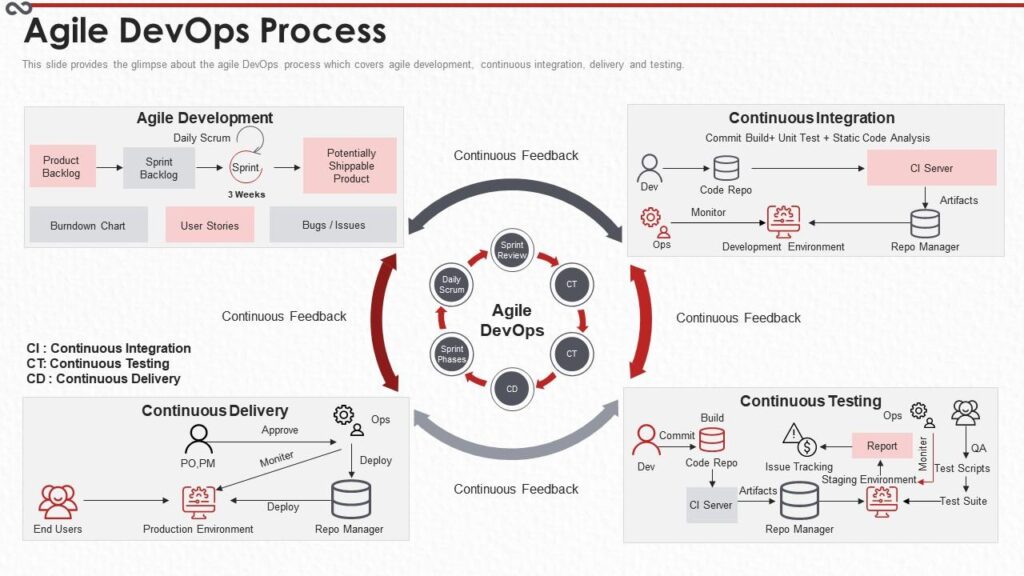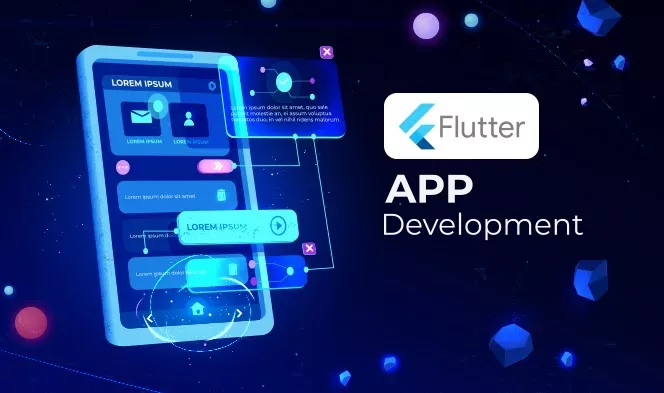In today’s fast-paced tech landscape, the term “DevOps” has become synonymous with efficiency, collaboration, and agility. But how did we get here? Understanding the evolution from traditional IT practices to modern Agile DevOps provides valuable insights into how technology and organizational practices have transformed to meet the demands of rapid development and deployment.

Traditional IT: The Pre-DevOps Era
Before DevOps, the IT world operated on a more siloed and segmented approach. Traditional IT practices were characterized by:
- Waterfall Development Model: Development teams worked in a linear fashion, where each phase of the project (requirements, design, implementation, testing, and maintenance) followed sequentially. This model often led to long development cycles and delayed feedback.
- Siloed Teams: Development and operations teams worked in isolation from each other. Developers wrote code, and operations teams deployed and maintained it. This separation often resulted in communication gaps and inefficiencies.
- Manual Processes: Much of the IT operations work was manual. Deployments were done by hand, configurations were adjusted manually, and troubleshooting was reactive rather than proactive.
- Fixed Infrastructure: Infrastructure was typically physical and rigid, requiring significant effort and time to scale or adapt. Any changes to the infrastructure were time-consuming and costly.
The Birth of Agile: Breaking Down Silos
The Agile movement, which began in the early 2000s with the Agile Manifesto, aimed to address some of the limitations of traditional IT by promoting iterative development, collaboration, and flexibility. Key Agile principles include:
- Iterative Development: Agile promotes small, incremental changes rather than big-bang releases. This approach allows for more frequent feedback and quicker adjustments.
- Cross-Functional Teams: Agile encourages collaboration among all team members, including developers, testers, and operations. This integrated approach helps break down silos and fosters better communication.
- Customer Collaboration: Agile emphasizes the importance of engaging with customers and stakeholders throughout the development process to ensure that the final product meets their needs.
- Responding to Change: Agile practices prioritize responding to change over following a fixed plan, allowing teams to adapt to new requirements and evolving market conditions.
The Emergence of DevOps: A Natural Evolution
DevOps emerged as an extension of Agile principles, aiming to integrate development and operations into a cohesive, continuous process. DevOps builds upon Agile by focusing on the following:
- Continuous Integration and Continuous Deployment (CI/CD): DevOps introduces CI/CD pipelines, which automate the integration, testing, and deployment of code. This automation enables faster and more reliable releases.
- Infrastructure as Code (IaC): IaC practices allow for the management and provisioning of infrastructure using code and automation. Tools like Terraform and Ansible enable teams to manage infrastructure with the same agility as application code.
- Collaboration and Communication: DevOps emphasizes even greater collaboration between development and operations teams. The goal is to foster a culture where both teams work together towards common goals, with shared responsibilities and accountability.
- Monitoring and Feedback: DevOps incorporates continuous monitoring and feedback loops to ensure that applications are performing as expected and to quickly address any issues that arise.
- Automation and Efficiency: Automation is at the heart of DevOps, aiming to eliminate manual processes, reduce errors, and speed up the delivery pipeline. This includes automated testing, deployment, and infrastructure management.
- Scalability and Flexibility: With the advent of cloud computing, DevOps practices have become more scalable and flexible. Cloud services offer on-demand resources and scalability, aligning perfectly with the iterative nature of DevOps.
DevOps Today: A Modern Approach
In its modern form, DevOps is not just a set of practices but a cultural shift that influences how organizations approach software development and IT operations. It’s about creating a culture of collaboration, continuous improvement, and shared responsibility. Key trends in contemporary DevOps include:
- DevSecOps: Integrating security practices into the DevOps process to ensure that security is considered throughout the development lifecycle.
- Site Reliability Engineering (SRE): Combining software engineering and operations to create scalable and reliable systems, with a focus on automating operations and measuring reliability through Service Level Objectives (SLOs).
- AI and Machine Learning: Leveraging AI and machine learning to enhance monitoring, automate operations, and predict potential issues before they impact users.
- Serverless Architectures: Using serverless computing to simplify deployment and reduce operational overhead by abstracting server management tasks.
Conclusion
The evolution from traditional IT to Agile DevOps represents a significant shift in how technology teams work and deliver value. By embracing Agile principles and integrating DevOps practices, organizations can achieve greater efficiency, collaboration, and adaptability. As technology continues to advance, the DevOps approach will likely evolve further, driving even more innovation and transformation in the world of IT.
Understanding this evolution not only provides a historical perspective but also highlights the ongoing need for adaptation and improvement in the ever-changing landscape of software development and operations.


Leave a Reply